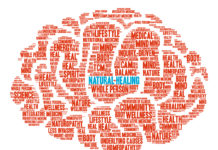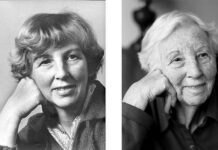“Sugar May be as Damaging to the Brain as Extreme Stress or Abuse”
“The fact that drinking sugar or exposure to early life stress reduced the expression of genes critical for brain development and growth is of...
Irritable Bowel Syndrome Linked to Psychiatric Conditions
A review published by Romanian and German researchers in the Journal of Molecular Psychiatry suggests that many psychiatric conditions have strong links to Irritable...
Consciousness is “Not Just Your Brain”
For NPR’s 13.7: Cosmos and Culture blog, philosopher Alva Noë comments on a new Oxford journal, Neuroscience of Consciousness. He is skeptical of the persistent tendency of some neuroscientists “to think of consciousness itself as a neural phenomenon.” His own view, he writes “is that the brain is only part of the story, and that we can only begin to understand how the brain makes us consciousness by realizing that brain functions only in the setting of our bodies and our broader environmental (including our social and cultural) situation.”
To Treat Pain, PTSD and Other Ills, Veterans Try Tai Chi
From NPR: The U.S. Department of Veterans Affairs has launched a new program that offers wheelchair tai chi classes in order to help veterans manage...
Time Spent in Green Places Linked With Longer Life in Women
From Harvard Health Blog: A 2016 analysis found that women living in areas with higher levels of green vegetation had lower rates of mortality. Spending time...
Yoga and Mindfulness Benefit Youth with Autism Spectrum Disorder
A new review finds preliminary evidence for yoga and mindfulness-based interventions for youth diagnosed with Autism Spectrum Disorder (ASD).
Stress Associated With Brain Shrinkage in Healthy People
In studies of healthy people experiencing stress, Yale researchers found tissue loss in brain areas regulating emotion, self-control and other behaviors.
Read more ...
How Trauma Lodges in the Body
In this episode of On Being, psychiatrist Bessel van der Kolk discusses the role that bodywork including yoga and eye movement therapy can have...
Psychosis Diagnosis Linked With Lower Rates of Exercise
A new study finds that for those experiencing symptoms associated with psychosis, a low-level of physical activity is associated with receiving a diagnosis of a psychotic disorder.
Reimagining Healthcare
The conventional Western classification systems of health conditions are based on flawed science shaped by reductionist, hierarchical, and profit-driven ideologies. THEN wants to create a new paradigm built upon principles drawn from systems science, the life course perspective, developmental neurobiology, and other evidence-informed studies.
We Are Now Qualified to do Anything, with Nothing
I attended Milt Greek’s educational opportunity at Cooper Riis’ The Farm last February 25, 2013 and it was especially fortuitous for me. What I was able to glean from the presentation, in short, was that it shook me up.
Why Nature is Good for Your Mental Health
From HuffPost Canada: Nature can positively impact people's mental health in major ways. People who spend time outdoors tend to get more exercise, which elevates...
Study Finds Meditation Can Reduce Trauma Symptoms for Inmates
Researchers found that Transcendental Meditation could significantly decrease anxiety and depression, among others symptoms.
International Guide to the World of Alternative Mental Health
Alternative Mental Health.com offers a directory of alternative mental health practitioners, a bookstore, support groups, email lists, and a monthly newsletter in support of reducing...
Therapy Changes the Brain, Reduces Anxiety
After undergoing a nine-week cognitive behavioral therapy (CBT) treatment for social anxiety, patients show changes to both the physical structure of their brain and its activity, according to a new study published in Translational Psychiatry. The amygdala is most closely associated with the experience of fear and this study found that patients receiving CBT with reduced social anxiety had significant changes to this section of the brain.
Yoga and Meditation Can Change Your Genes, Study Says
From TIME: A new scientific review suggests that yoga, meditation, and other mindfulness activities can reverse stress-related changes in genes linked to health problems and...
Study Finds No Correlation between Personality at 14 and 77
This result calls into question popular notions about the correlations between personality and later-life achievement and health outcomes.
Treating Depression with Exercise and an Internet-Based Intervention
A new study compares exercise, Internet-based cognitive-behavioral therapy (ICBT) and usual care for treating individuals with depression.
What a new role for psychiatrists might look like
People have been wondering on this site lately if there is still a role for psychiatrists. The short answer is maybe, if they can...
More Physical Activity-Based Mental Health Interventions Needed in Schools
What physical activity-based programs are being implemented in schools, how are they being researched, and what kind of impact have they made?
Scuba Diving’s Effects on Flashbacks
NPR reports on veterans struggling with traumatic flashbacks who've found peace in exploring underwater. "I went through group therapies. I was actually institutionalized for...
Ear Acupuncture to Support Mental Health
In the last 30 years, acupuncture and Chinese medicine have become increasingly popular as a modality for helping people not only with health concerns but also with emotional distress and addictions issues. Acupuncture has been especially helpful for people who are detoxing from drugs and alcohol as well as those who have experienced a high degree of trauma, such as returning military veterans. One of the most innovative and wide spread ways of helping this population is through something known as the five needle protocol, or the NADA protocol.
Harm Reduction Guide to Coming Off Psychiatric Drugs
Will Hall's Harm Reduction Guide, published by the Icarus Project and Freedom Center.
A Healing Journey: Leaving Psychiatry Behind
The world calls what was "wrong" with me "bipolar." I prefer the notion that I went through a birth process to become the healer that I am today. I can't be silent because I know there are people like I was who are trapped and may not realize it yet. When they begin to see the prison bars that surround them, I want to be there for them as others were for me.
International Psychologists To Host Public Webinar on Rational Emotive Behavior Therapy
The Society for International Psychology, Division 52 of the American Psychological Association, will host a webinar entitled “The Humanistic, Vigorous and Universal Approach of Rational Emotive Behavior Therapy.”






















